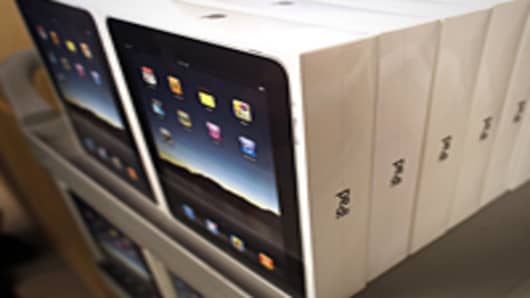In a phone conversation with EPEAT CEO Robert Frisbee, I learned that Apple's exit from the organization caused major waves. Frisbee said he got a flood of feedback from "dozens" of purchasers, many of whom were concerned that they wouldn't be able to follow through on planned purchases that included Apple equipment.
EPEAT-certified goods make up more than $65 billion in purchases annually. Frisbee said he didn't know whether Apple received the same volume of feedback. (But I bet they did.)
Here's why Apple's reversal really matters. The old Apple didn't care about this kind of stuff. It sold its products overwhelmingly to individual consumers, and one of the advantages was that it didn't have to worry too much about the preferences of corporate purchasing departments.
Sure, there were small exceptions — it sold an eMac computer to education customers that was crafted for the needs of that institutional audience, for example. But Apple has largely shrugged off the concerns of corporate customers, at least when they conflicted with Apple's internal priorities for making a more elegant product.
Note that its laptops no longer have the removable batteries I.T. departments covet, and the latest version of Apple's Final Cut Pro editing program was such a drastic departure from previous versions that it upended professional video workflows, and prompted some pro video shops to abandon the product.
Which brings us to this EPEAT situation. The new Apple is poised to become the largest technology company in the world by revenue – and if it's going to fulfill its potential, it can't afford to alienate major purchasers of Macs, iPhones and iPads.
No question, that's exactly what Apple's withdrawal of its products from the EPEAT registry would have done. Some major buyers like educational customers and governments require that most or all of their technology purchases be EPEAT certified. No certification, no purchase.
Even though iPhones and iPads don't fall under the umbrella of EPEAT certification, they'd still be affected.
If organizations were no longer able to purchase Macs, it would be harder for them to increase purchases of smaller-ticket mobile items.
Perhaps more important, Apple had developed a reputation among corporate purchasing departments for not being the easiest supplier to work with.
The real danger here might have been bruising the trust of the institutional purchasers who will be a key constituency if the iPad and iPhone are going to become mainstays of the office as well as the home.
email: tech@cnbc.com



